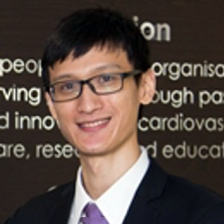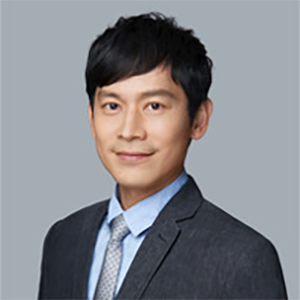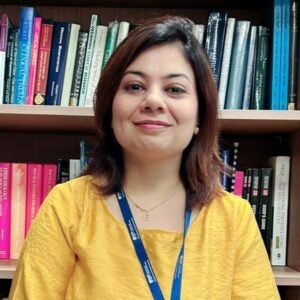course-sph5420-2024
- Home
- course-sph5420-2024
SHORT COURSE: Evidence Synthesis for Health Technology Assessment
Date: 16 August – 15 November 2024, every Friday
Time: 6pm – 9pm (SGT)
Format: In-person
Venue: MD1 Tahir Foundation Building, National University of Singapore
Course outline
Research growth and the related exponential rate of accumulation of publications have escalated the need for effective and efficient methods to synthesize the evidence base for evaluating health technologies. This course is designed to provide participants with the skills to generate good quality evidence for conducting health technology assessments (HTA) that meet the needs of decision makers.
Learning outcomes
This course is designed to provide participants with the skills to generate good quality evidence for use in health technology assessment (HTA). Upon completion, participants will be able to:
- Demonstrate an understanding of the role of HTA in informing healthcare decision-making
- Recognise HTA-related clinical questions (e.g. therapy, diagnosis, prognosis, aetiology, harm, and disease prevalence)
- Use PRISMA guidelines for conducting systematic review
- Use RevMan for conducting meta-analysis Be familiar with tools for assessing study quality and risk of bias
- Incorporate health-related quality of life data from published literature in HTA
Who Should Attend?
- Healthcare professionals (doctors, nurses, pharmacists or allied health professionals) with an interest to conduct HTA.
- Research staff who provide technical or librarian support to healthcare professionals.
- Professionals with quantitative background (e.g. economics, biostatistics or business) who would like to understand how clinical evidence and patient reported outcomes are incorporated into HTA.
Certification
An electronic Certificate of Participation will be awarded to participants who meet a minimum of 75% attendance.
Course instructors
 | Course coordinator: A/Prof Wee Hwee-Lin Associate Professor, Saw Swee Hock School of Public Health, National University of Singapore A/Prof Wee is an Associate Professor in the Saw Swee Hock School of Public Health at the National University of Singapore. Her current work involves understanding patient preferences for high- cost treatments, public preferences for pre-emptive pharmacogenetic testing and factors associated with well-being among Singaporeans. |
 | Lecturer: Mr Adrien Gras Head of Market Access & HEOR, APAC, Ipsos Mr Adrien Gras is a highly experienced leader in global pharmaceutical and medical device market access and HEOR. He has been involved in all aspects of product development, from R&D activities such as drug target identification and drug discovery, pipeline commercial strategy, economic modelling, government reimbursement negotiation, and lifecycle management. He has published peer-reviewed journals and manuals in the fields of biochemistry, health economics and policy. |
 | Lecturer: Dr Charles Zheng Qishi APAC Regional Market Access, Roche Diagnostics Asia Pacific Dr Zheng was medically trained and currently oversees APAC Regional Market Access in Roche Diagnostics Asia Pacific and a member of the Cochrane Singapore . His research interests lie in systematic review and meta-analysis for both diagnostic and interventional studies, health economic modelling and statistical analysis. Formerly, he was a Senior Epidemiologist with Singapore Clinical Research Institute, collaborating with local clinicians and researchers on conducting clinical trials, real-world studies, and health services research. |
 | Lecturer: Dr David Bin-Chia Wu Regional Director, Real World Evidence & Health Economics (Asia Pacific) Dr David Wu Bin-Chia is the Regional Director of Real World Evidence & Health Economics at The Janssen Pharmaceutical Companies of Johnson & Johnson in Singapore and is also an Adjunct Senior Lecturer of Monash University Malaysia. His diverse research activities centred around generating evidence through economic evaluations based on various economic modelling and biostatistical approaches to inform healthcare policy decision-making. He has collaborated extensively with international institutions including the World Health Organization, the United States Agency for International Development, Centers for Disease Control in Taiwan, the Malaysian Ministry of Health, Ministry of Health (the Philippines), and has provided expert advice and technical support to many pharmaceutical companies in health economics and outcomes research. |
 | Lecturer: Dr Gunjeet Kaur Postdoctoral Fellow, Saw Swee Hock School of Public Health, National University of Singapore Dr Gunjeet Kaur is a public health professional, with a doctoral degree in Health Economics on “Role of Health Technology Assessment in Priority Setting for Health Care in India” from Department of Community Medicine and School of Public Health, Post Graduate Institute of Medical Education and Research, Chandigarh, India. Her research experience and interests include evidence synthesis, costing, out-of-pocket payments, cost-effectiveness analysis and distributional cost-effectiveness analysis studies in health care. Previously, she was working as Senior Researcher/consultant at Bergen School of Ethics and Priority Setting, Norway. Currently, she is a postdoctoral fellow in HTA in the Saw Swee Hock School of Public Health, National University of Singapore. |
 | Lecturer: Ms Lin Liang Head, Value-based Pricing, Drug, Vaccine & Gene Therapy Evaluation, Agency for Care Effectiveness (ACE) Leveraging on her experience in both the private and public healthcare sectors, Ms Lin Liang joined ACE, the national health technology assessment (HTA) agency in Singapore, in 2016 and contributes technical capability in HTA. She engages companies in value-based pricing negotiations to lower the prices of subsidised drugs and health technologies to make them more affordable for patients who need them. She also oversees the Evaluation team to ensure quality assurance of evaluation reports and ACE guidance documents to support national funding recommendations. |
Fee
| Category | Fee* |
| Student/LMICs | S$1438.80 |
| NUHS staff/ Non-profit Partner | S$2398.00 |
| Public Sector/ Corporate Partner | S$3597.00 |
| Private Sector | S$5995.00 |
Remarks:
- LMIC refers to countries listed under the Low-Income Economies or Lower-Middle Income Economies according to the World Bank.
- NUHS staff refers to staff under the NUHS cluster (including NUH, NTFGH, AH, JCH, NUP, National University Cancer Institute Singapore, National University Heart Centre Singapore, National University Centre for Oral Health Singapore, Centre for Innovation in Healthcare).
- Non-profit partner refers to members under HTAsiaLink & iDSI members.
- Public sector refers to any government agency, hospital or state university.
- Corporate partner refers to members under APACMed and SAPI.
- Private sector refers to any private hospital, university or private company.
*Prices stated above are in Singapore Dollars (SGD) and are inclusive of 9% Singapore Goods and Services Tax. The University reserves the right to review and adjust the course fees and make changes to the programme structure and requirements as necessary and accordingly without prior notice.
Application
- Application closes on 26 July 2024 OR when the application is full.
- For more information on this course, please contact us at hiper@nus.edu.sg
Cancellation
- Cancellation is permissible if conveyed to the course administrator in writing via email before 2 August 2024.
- A cancellation charge of 50% of the fee will be levied if the cancellation is received after 2 August 2024.
- No refunds will be given from 2 August 2024 onwards but substitution with another name is permissible. Please inform the course administrator in writing via email, and provide the name and details of the substitute by 9 August 2024.


